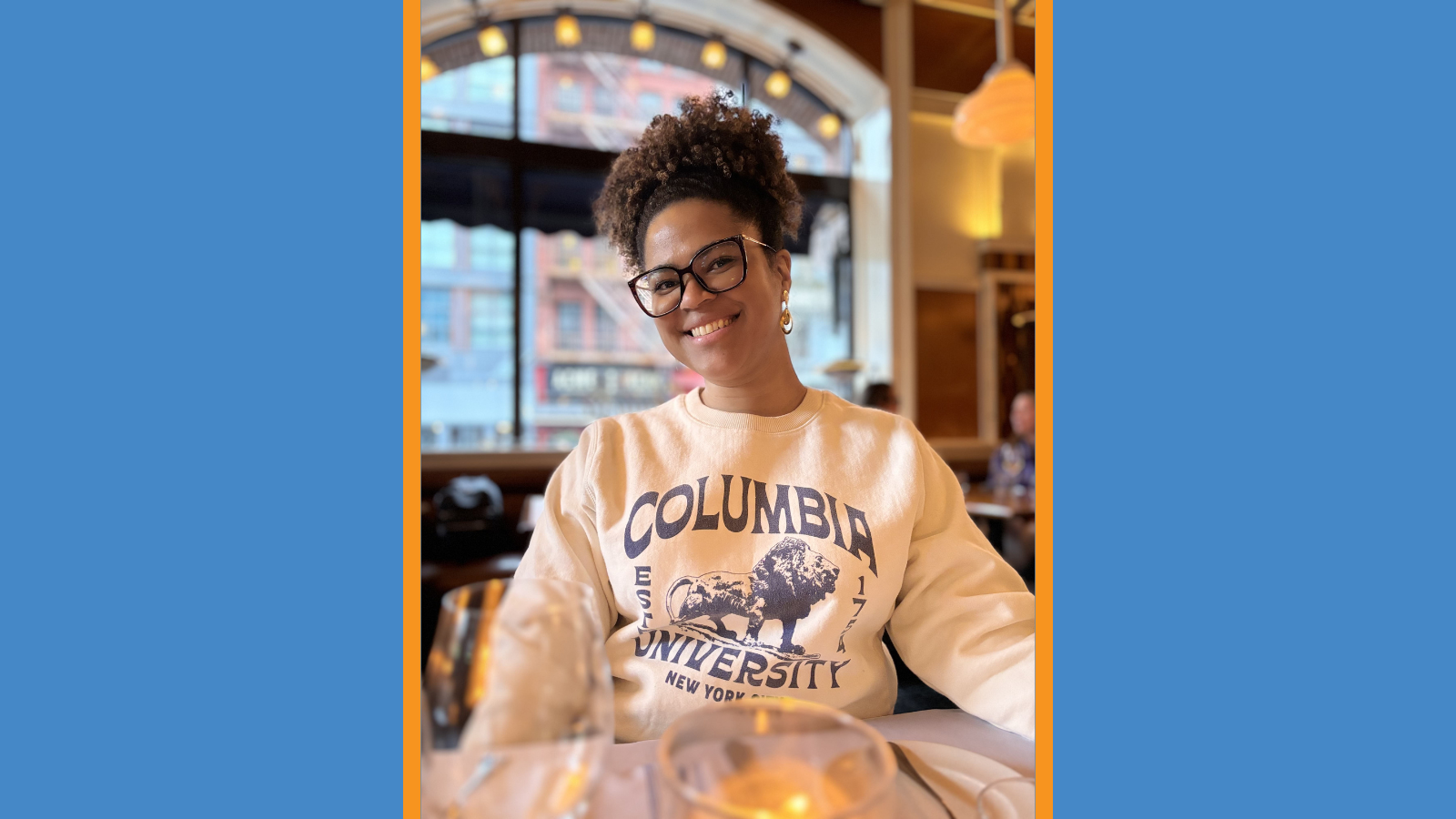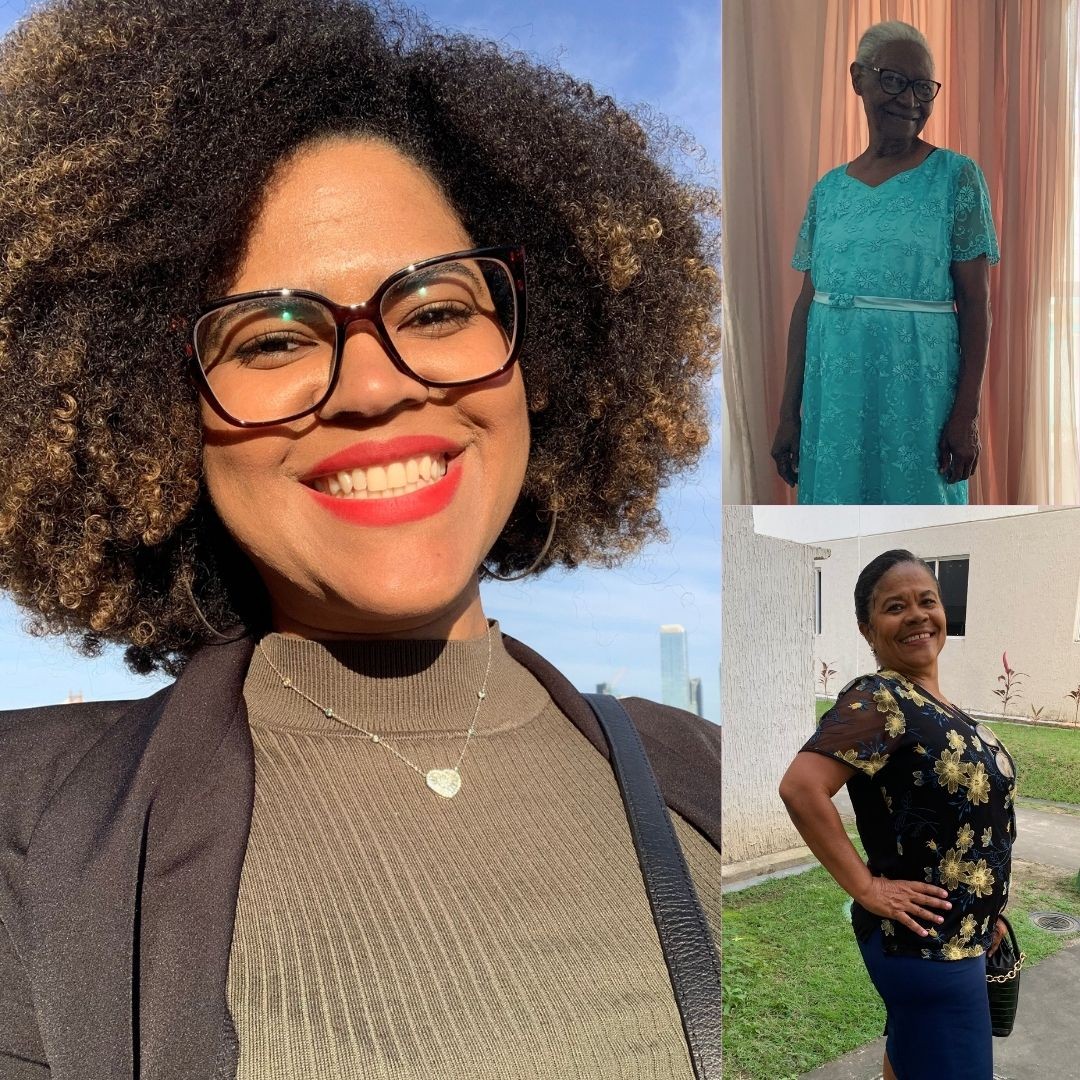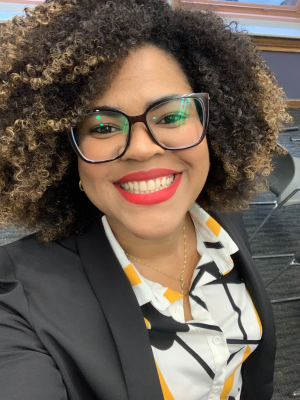Suane Larissa Bispo dos Santos on Finding Motivation and Women’s Empowerment
Suane Larissa Bispo dos Santos is a student at the School of International and Public Affairs (SIPA). Originally from Brazil, she came to New York City with her family in 2023 to pursue a Masters degree in Public Administration. For Women’s History Month, she spoke with us about role models who empowered her growing up, raising her son in a male dominated society, and how she hopes to inspire young girls and give back to her community.

This interview has been edited for clarity and style.
What are your plans when you graduate this Spring?
It's my goal to return to my country, so I can apply all of the knowledge that I'm acquiring here towards vulnerable communities in Brazil. That was my main goal in coming here to Columbia.
One of the things that most touched my heart, and at the same time gave me the willingness to make change, is working with my community to bring resources and technical understanding to improve the mechanisms we already have.
I'm trying to switch from the public sector to the third sector (nonprofit and social enterprise space). However it’s a challenge because the public sector has one of the most important roles towards societal achievements.
I am from a humble family. I had to study a lot in order to change my destiny, and I believe that education is one of the paths to changing the environment. That’s my goal: to return and give back to my community, give back to my country all of the knowledge acquired here, and focus my strength and my capability to work on Brazilian society.
What motivated you to want to be involved in our Women’s History Month campaign?
As a society, we still have a lot to accomplish in terms of gender equality.
I feel like here in the United States, it's not much different from what I faced back in Brazil. Even though in my country women are the majority of the population, we still have a lot to accomplish in terms of women in leadership positions and female presence in politics. We know that these are the roles that have the power to move the needle in another direction and hopefully get us to a better place.
We are still behind in terms of metrics of women in higher professional positions, but when you look at households, at least in my country, they are led by women. As a society, we should reflect female leadership that is already going on inside of our small communities and our households into higher positions.

Did your experiences growing up impact the work that you want to do now?
Definitely. My grandmother is one of my inspirations. She's a woman that does not not have secondary education, but she always tried to make sure that her children had access to school. She saw education as a way to change the reality they were in.
My mother as well. I've seen her struggle with working late at night and coming home and taking care of me and my sister. Even though we had a paternal figure in our house, most of the responsibilities were reliant on her. I saw how much of a burden this can be.
Having my grandmother and my mom as these strong figures incentivized my family, me, and my sister, to continue our studies and gave us strength to pursue whatever professional field we wanted to. It was one of the most empowering, inspiring things that happened to me.
If I didn't have this role model so close to me and giving me most of the support that I needed, back then and throughout my life, I wouldn't have come here to Columbia. I wouldn’t have gone so far from home.
Coming from a small community in Brazil, a poor neighborhood, I was able to always focus on my studies and achieve professional goals that I couldn’t imagine at the beginning. One of my goals is to work with underserved communities, so people that look like me, that came from the same places that I came from, can have more opportunities.

Before you applied to Columbia, were you nervous? What made you want to apply to Columbia?
I was really nervous. I was tense. I was stressed. It was something I thought was so out of reach. All of the support I received through this journey gave me enough strength, so I could pursue this goal. It’s a dream that most of the time I thought was unreachable.
It was challenging because I was working full time, and I was studying to apply to a master's degree outside of my country. I was also a full-time mom as well as a full-time wife. At the same time, all of those roles gave me inspiration and gave me focus to stay on the path and organize my time and duties.
But at the same time, I'm not going to romanticize this. There were moments I thought my efforts would probably lead to nothing because sometimes I doubt my success and of being accepted here.
These kinds of thoughts were surrounding me, but I couldn't let them win. I had moments in which I asked myself, “Why am I submitting to this kind of stress? Why am I doing this to myself?”
Every time I found myself in this bad position of questioning all of my goals, I would look inside and my reasons were clear: I wanted to advance my career, and I wanted to work towards helping my community.
What does Women’s History Month mean to you?
Women's History Month is a time when we can openly – and in a focused way – discuss gender issues and propose solutions to address these issues.
We shouldn't be constrained into this sort of box of time. We should propose initiatives that last throughout time.
We should try to incentivize women and girls to continuously be an active voice throughout and give them support. Support should come from all of society.
Having this month to reflect on our history, reflect on how much we have improved so far, and how much we still have to get done, it’s what will guide us to the next level. This is the main goal of this month.
Every time I found myself in this bad position of questioning all of my goals, I would look inside and my reasons were clear: I wanted to advance my career, and I wanted to work towards helping my community.
What does your family think about you coming to Columbia and all that you have achieved so far?
I’m a first generation college student. My grandmother and my mother didn’t have access to higher education. They see me as someone they are really proud of, who has accomplished a lot of things that they couldn’t in their time. At the same time, they still see me as their little child. What connects us goes beyond the scope of professionalism and studies.
Do you get inspiration or motivation from your family? Do you see yourself as a role model for your son?
Motherhood gives you a different level of resilience because you're looking after another life that's under your care. I hope I’m a role model for my son. He is a male in a society that treats women as a minority. What I try to do as a woman parenting a son is to show him that he can be vulnerable too. That he can trust me. That our relationship is a relationship based on trust and love. And most of all, that he can be whatever he wants to be. And me as a mother, I will support him on this path.
Motherhood gives me resilience and strength. I don’t know how to put it into words, but we do become this force of nature and at the same time, we empathize more with other people. We can see that there are individuals that have their beliefs, and even when I do not agree with their ideas or actions, I can still be respectful and try to understand through dialogue. This is one of the biggest lessons my son has taught me.
Motherhood gives me resilience and strength. I don’t know how to put it into words, but we do become this force of nature and at the same time, we empathize more with other people.
How is it being a mother, a student, a club leader?
It is hard. I don't have time to sit and reflect about it. I just do it. When you are motivated towards a goal, you shouldn’t question and doubt. You should focus on your goal. My goal coming here was clear, I wanted to integrate in the community of SIPA students. I had to come with my son otherwise my body would be here but my mind would be there.
There’s a saying in my country: it takes a village to raise a child. And that is true. My village here is my husband. It's a one person village. But he’s supportive and the best father my son could have. He does not let everything be on my shoulders. He acknowledges how much it takes for me to be in charge of assignments, courses, be a student leader, and at the same time come home and play with my son, take care of him, and worry about him being settled at school.
He acknowledges that and helps me with everything he can. I know in most houses it’s not the same because most of the care and the burden of raising a child lies on the shoulders of women. By raising a son, I can teach him that he’s responsible for his duties, and if in the future he wants to have a family, he’s responsible for their children 100 percent.
Want to share your story with us? Fill out this form or write to us at [email protected], if you'd like to connect with us about Student Voices.
